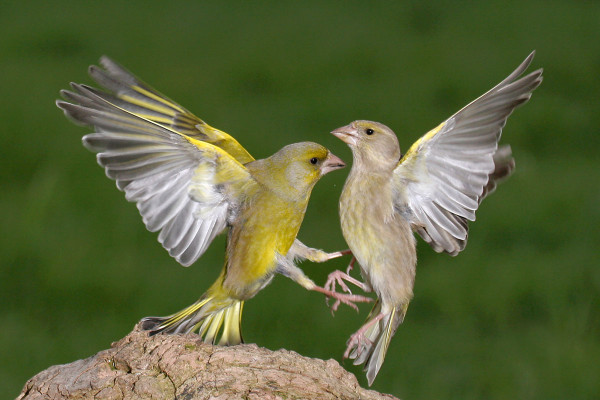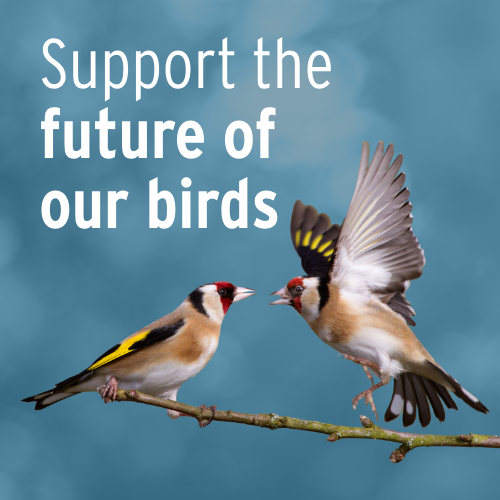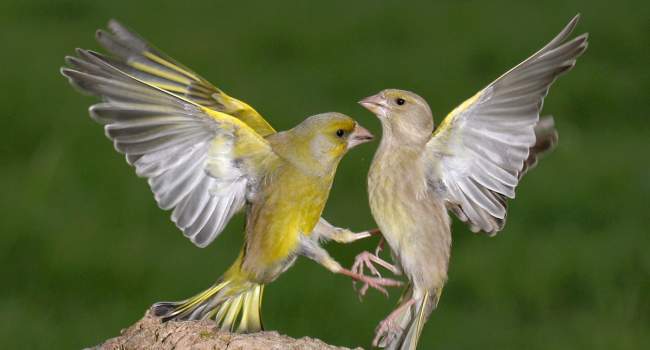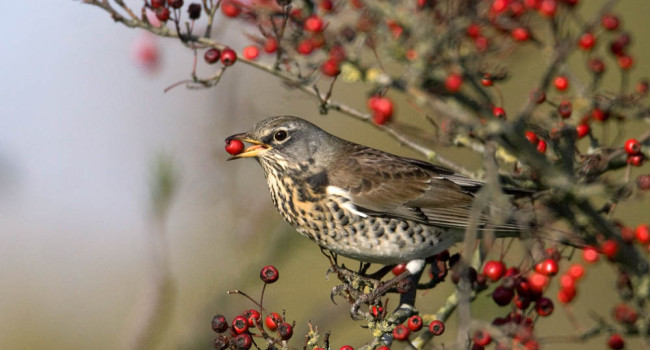Good hygiene practice

Prevention is better than cure
Diseases can be seen in birds both in natural habitats and in gardens. Infectious diseases, such as avian influenza (bird flu), and noninfectious diseases can cause birds to die, and can be a welfare concern for affected birds. Sometimes deaths caused by disease may lead to wider population declines, and some infections of wild birds can also affect human and domestic animal health.
Birds that wouldn’t normally meet in close proximity may congregate at garden feeders, or may gather at higher densities than seen in other habitats, both of which may increase the risk of disease transmission. Unfortunately, by the time it is possible to catch a sick bird for treatment, it is likely to be too ill to help.
Treating sick birds without first capturing them is not advisable because there is no way of ensuring that medicines will be taken only by affected birds or in the correct doses. It is better to take preventative action to stop disease transmission in the first place.
How to prevent disease transmission
The most likely places for disease to spread in gardens are garden feeders and bird baths, which sick birds may contaminate with infectious material, such as saliva or droppings. Here are some simple tips to reduce the risk of disease in your garden birds:
Your feeding set-up
- Use several feeding stations to reduce the number of birds in any one place.
- Rotate the use of feeding stations so they’re not all in constant use; rest periods can help reduce the accumulation of potentially infectious material under feeders.
- Avoid placing feeders under garden features where birds perch or roost; this will prevent contamination with droppings.
Keeping things clean
- Regularly clean bird baths, feeders, feeding stations and hard surfaces under feeders, and treat with a suitable disinfectant (e.g. a weak solution of domestic bleach). Carefully rinse all surfaces with clean water and air dry before using. Clean your feeders outside and maintain careful personal hygiene, including wearing gloves and making sure that brushes and buckets are not used for other purposes, as some diseases can affect human and domestic animal health.
- Provide a variety of good-quality fresh foods, and avoid over-filling feeders, to ensure they are emptied every few days. This will help to prevent old food building up.
- Do not allow seed or old food to accumulate on the ground below feeders, and particularly on surfaces that are damp and/or contaminated with droppings. Regularly clear accumulations of old food and droppings from any areas that cannot be disinfected (e.g. bare earth or grass).
- Provide clean drinking water on a daily basis.
What should I do if I see a sick bird?
Finding a sick or dead bird in your garden can be distressing. Here is some information about what to do if you see signs of disease.
Should I stop feeding?
If you see birds of any species that you suspect may be affected by disease in your garden, particularly if you see multiple sick or dead birds, we recommend that you stop feeding for at least two weeks (since you last saw an unwell bird) in order to encourage birds to disperse, thereby reducing the chance of birds infecting each other at your feeding stations.
Only reintroduce feeding as long as you are no longer seeing birds with signs of disease, and closely watch for any further signs. If you see further signs of disease, once again stop feeding. We also recommend leaving bird baths empty until no further sick or dead birds are seen.
Can a diseased bird be treated?
Treatment is rarely an appropriate option. If you find a sick or injured bird that is capable of avoiding threats (such as domestic animals), it may be in the bird’s best interests to be left in the wild.
However, if you become concerned about the welfare of an affected wild bird, we recommend contacting a local vet, or the RSPCA (England and Wales) or Scottish SPCA (Scotland) for advice.
- Please bear in mind that wild birds have unique requirements for survival after treatment and are relatively intolerant of prolonged captivity.
Report signs of disease
Please report sickness or death in garden wildlife (birds, amphibians, reptiles or Hedgehogs) to the Garden Wildlife Health project so wildlife vets can help reach a diagnosis, where possible, and contribute to a national database of wildlife disease incidents.
Garden Wildlife Health (GWH) is a collaborative project between the Zoological Society of London (ZSL), the British Trust for Ornithology (BTO), Froglife and the Royal Society for the Protection of Birds (RSPB), and aims to monitor the health of, and identify disease threats to, British wildlife.
Buy bird feeder hygiene products from a reputable company
BTO is proud to work in partnership with leading bird-care company Vine House Farm, with the shared aim of making a positive impact for birds.
- Please visit their website for high-quality nest boxes, bird houses, foods, feeders and more.







Share this page